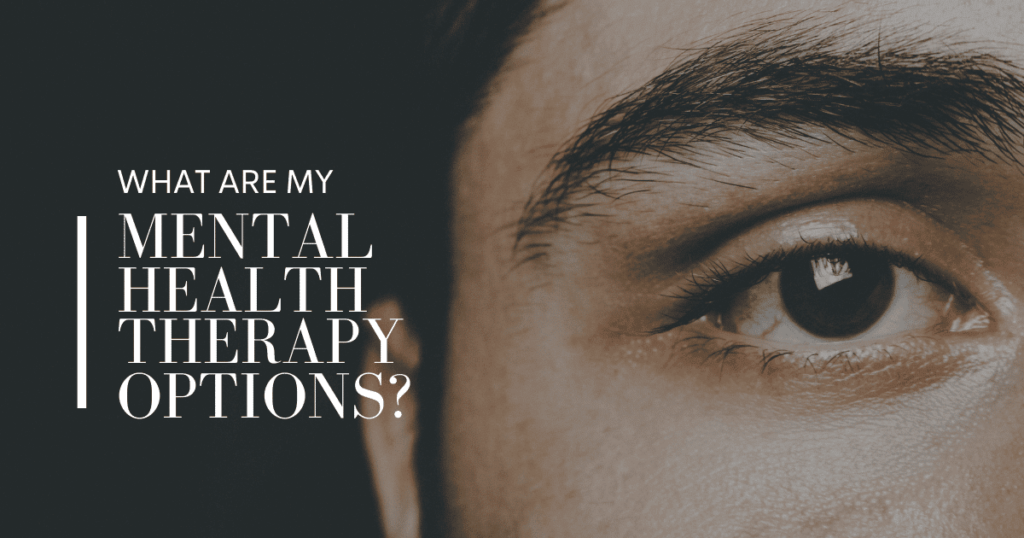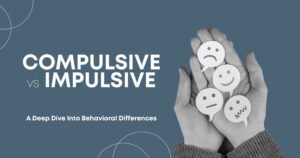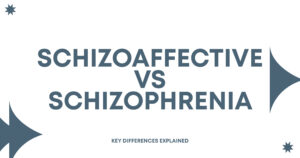Many people don’t realize there are many different mental health therapy options and mental health counselors. Different types of therapy can be appropriate for some disorders and not others. You may also find that you work better with a certain kind of therapist or counselor than others.
It’s very personal to you when you’re exploring mental health therapy options and clinical mental health counseling. What works for one person won’t always for another. There can be some trial and error in finding what’s best for you.
Learning about everything available to you puts you on a more efficient path to discovering the benefits of therapy in your life.
Understanding Mental Health Services and Mental Health Care
Therapy is also known as counseling or psychotherapy. You work with a professional mental health provider to deal with problematic behaviors, feelings, and beliefs. Some therapists also work with people on relationships and their bodily responses.
- When you start therapy, it helps you work toward being your best self.
- You can work on changing self-destructive behaviors and habits, improve relationships, and deal with past pain or trauma.
- In all the different mental health therapy options, you set goals. Your counselor or therapist will help you outline the steps you’ll need to take to achieve those goals.
- Everything you say in a therapeutic setting is confidential.
- The therapy process is one where you share feelings and experiences, and a therapist should support you, listen, and give you feedback.
- Therapists should tailor the process and treatment plan to you specifically and always follow ethical guidelines.
Therapy can accomplish a great deal.
- Often people go when they have a specific mental health concern like anxiety, depression, grief, or post-traumatic stress disorder.
- A therapist can work with a patient on short-term concerns that are situational or long-term, chronic situations.
- Some types of therapy are focused on insight. In insight-based therapy, you might become more aware of unconscious motivations for the things you do currently and your behavioral patterns.
- There are also active forms of therapy. In therapy, you learn specific, research-backed strategies to change your negative thinking and be happier and more fulfilled in your life.
Below, we explore some of the most commonly used types of therapists and therapy.
Types of Therapists and Professional Counselors
When you consider the mental health therapy options available to you, you might first learn more about types of providers.
Providers of clinical mental health counseling can include:
- Marriage and family therapists work to help people in their marriages or relationships with family members. Counselors who practice family therapy will often divide treatment time between individual counseling and time with the couple or family members together. You might also hear this type of counselor called a marriage counselor or couple’s counselor.
- Addiction therapists have training specifically to help people dealing with substance use disorders. An addiction therapist can work one-on-one with clients, or they could facilitate group therapy for people who are all struggling with addiction.
- Behavioral therapists work with clients who have mental disorders and are experiencing problems in their functioning or daily lives. For example, if someone has anxiety or a panic disorder, a behavioral therapist can work with them to develop coping strategies to improve their lives.
- Clinical therapists work with clients who have underlying mental health problems. Their work tends to go deep into how root causes impact daily life.
- A cognitive-behavioral therapist uses talk therapy and behavioral therapy to help people with most disorders, including depression, eating disorders, and substance abuse.
- Social work therapists help marginalized populations connect with the resources they need for healthy and productive lives.
- Trauma therapists have specialized trauma-informed training. Trauma therapists and counselors help clients process what causes them pain and then create coping mechanisms for the emotions that stem from their experience.
- Dialectical behavior therapists work with patients with severe mental health conditions, such as borderline personality disorder.
When you’re choosing a mental health professional, there’s a lot to consider.
- You first want to learn more about their professional training and their hands-on experience and field experiences with your symptoms or condition.
- You may need to consider whether they’ll accept your health insurance coverage, how many sessions per month they would expect you to participate in, and how comfortable you feel working with them.
- A good therapist will have completed a relevant undergraduate degree program and perhaps have a graduate degree. They should also have training in psychotherapy pertinent to their symptoms or clinical concerns.
Types of Therapy
There are many types of therapy, and below are details of some of the more commonly used forms.
Cognitive-Behavioral Therapy
Mental health counselors use cognitive behavioral therapy or CBT to help clients learn more about the relationship between their behavior and their thoughts and feelings. A licensed counselor works with people to learn more about thought patterns that aren’t healthy in this treatment option.
When you’re working with professional counselors in CBT, you will talk about how your thinking patterns lead to self-destructive beliefs and behaviors.
After exploring unhealthy thoughts, you learn how to reframe your thinking and gain a more positive, healthy outlook in your mental health counseling program.
CBT is considered an effective treatment for many mental health disorders, including:
- Depressive disorders
- Anxiety disorders
- Bipolar disorder
- Schizophrenia
- Psychotic disorders
- Eating disorders
- Disorders related to trauma
Dialectical Behavior Therapy
Also known as DBT, dialectical behavior therapy is similar to CBT, according to the American Counseling Association. The key difference is that you focus on regulating your emotions, being mindful, and learning how to accept your feelings. A therapist who uses a DBT approach will help you find a sense of balance between acceptance and change as one of your key therapy goals.
You can learn new skills as you work with your mental health care provider, like mindfulness and coping mechanisms that apply to a particular situation.
DBT was first developed to help people with borderline personality disorder having suicidal thoughts.
The approach may help treat substance use disorders, mood disorders, eating disorders, and Post Traumatic Stress Disorder PTSD.
Eye Movement Desensitization and Reprocessing Therapy
EMDR is a way for therapists to help treat people with PTSD. With EMDR, you recall a traumatic event while asked to do certain eye movements. You are working to replace your negative reactions to painful memories with positive responses.
Exposure Therapy
Exposure therapy is a subtype of CBT, and it can deal primarily with anxiety disorders and disorders related to fear. Therapists might use exposure therapy for phobias, obsessive-compulsive disorder (OCD), and PTSD.
During exposure therapy, you work with a therapist to learn more about what triggers your anxiety. Then you focus on developing strategies to avoid anxiety or ritual-based behavior after exposure to triggers.
You’re exposed to triggers in a controlled environment so you can begin to practice the strategies and methods you learn. Then, you can gradually work your way up to real-world experience when you’re ready.
Group Therapy
Group therapy is often used in addiction treatment programs. When you participate in group therapy, you share your experiences with people who have similar ones in their own backgrounds.
A therapist leads discussions, and then members share personal thoughts and their experiences.
Group therapy offers the opportunity for social support, but there’s a lack of one-on-one attention that you get from individual therapy.
There are many conditions group therapy can help aside from addiction. Support groups, for example, can help people with behavioral or learning issues, depression, anxiety, and trauma. Therapy in a group setting may also benefit personality disorders and grief.
Mental Health Treatment in San Diego
Many people don’t initially realize they have many mental health therapy options. Along with what’s above, there are also a lot of different settings where you can work with a mental health professional.
For example, some licensed professionals work in private practice or a mental health center. Others might work with government organizations or nonprofits, and mental health professionals also work at addiction treatment centers.
People are increasingly turning to telehealth services as they go through counseling services. Telehealth services can work well if you face limited therapist availability where you live and wait times for behavioral health specialists and clinical mental health counselors are long.
Unless a therapist is a medical doctor, a physician’s assistant, or has the appropriate clinical therapist qualifications, they can’t prescribe psychiatric medications.
Don’t give up if you’ve tried one type of therapy and didn’t find it worked well for you. There is a good fit for you—it can just take time to find it.
Contact the Mental Health Center of San Diego at (858) 258-9883 to learn more about your mental health therapy options and how to improve mental health outcomes in your life. We can also answer questions about particular things, like whether health insurance companies will cover individual talk therapy, different methods of couples therapy, or explain other therapeutic interventions.

















